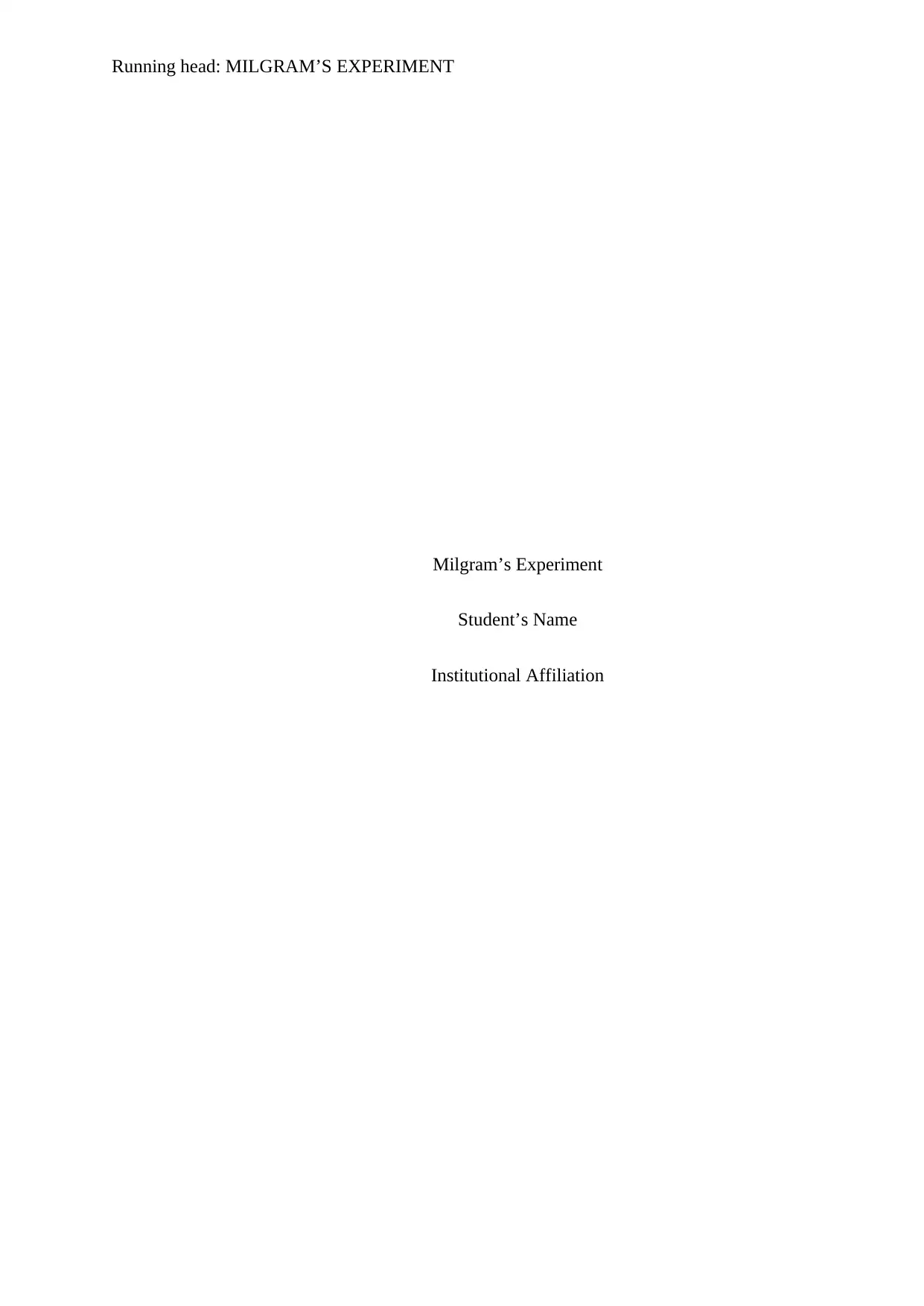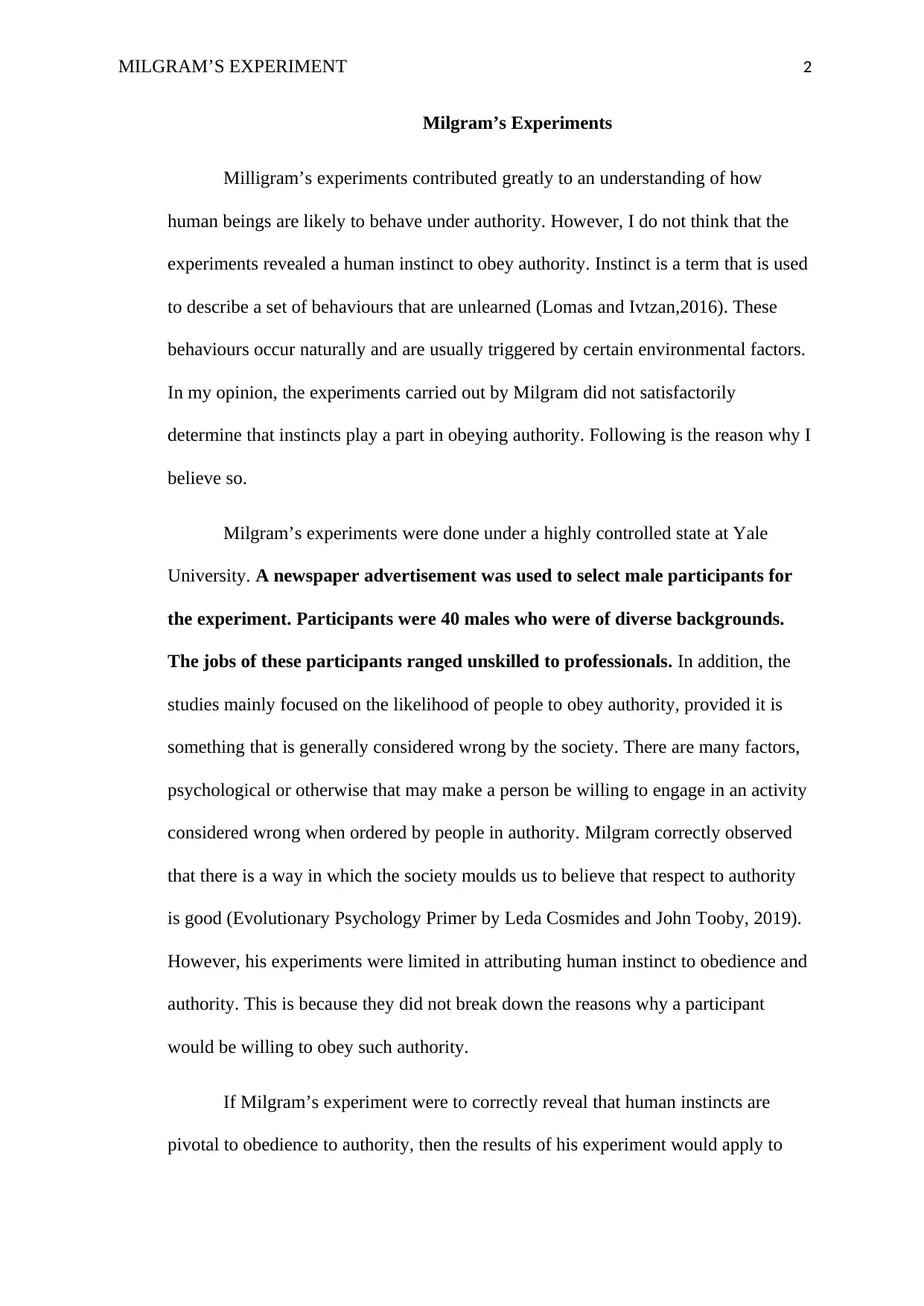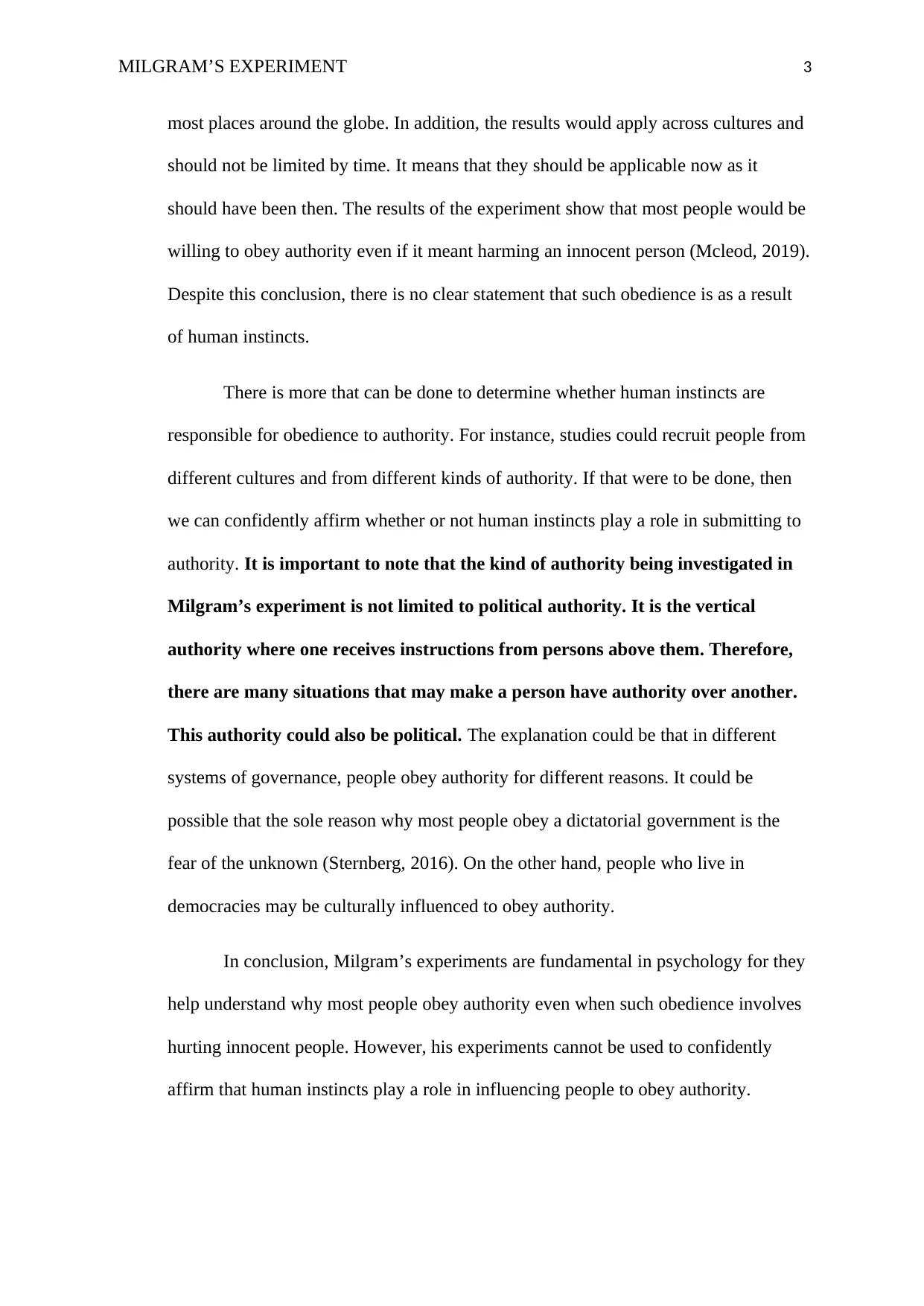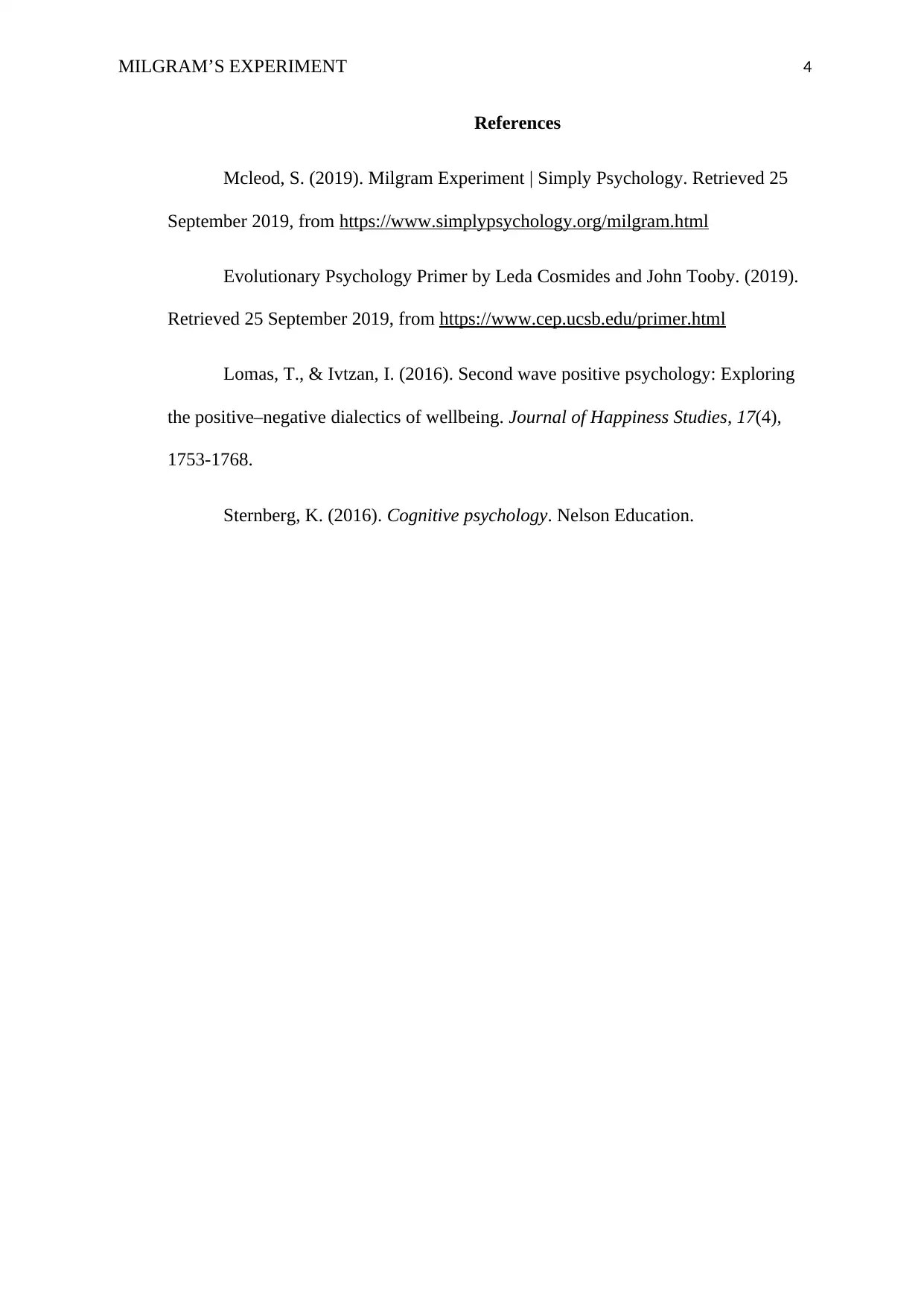Evaluation of Milgram's Experiment: Obedience and Authority
VerifiedAdded on 2022/10/10
|4
|757
|348
Essay
AI Summary
This essay critically examines Milgram's experiments on obedience to authority, questioning the assertion that human instinct is the primary driver. While acknowledging the profound impact of Milgram's work on understanding how individuals behave under authoritative influence, the essay argues that the experiments do not conclusively prove a direct link between human instinct and obedience. The controlled environment of Yale University, the selection of male participants from diverse backgrounds, and the focus on obedience in situations deemed morally wrong limit the generalizability of the findings. The essay suggests that cultural and political factors, as well as the fear of consequences, may play significant roles in obedience, particularly in different systems of governance. It concludes that while Milgram's experiments are valuable for understanding obedience, further research across diverse cultures and authority types is needed to determine the extent to which human instincts influence this behavior. Desklib provides access to similar essays and study resources for students.
1 out of 4











![[object Object]](/_next/static/media/star-bottom.7253800d.svg)